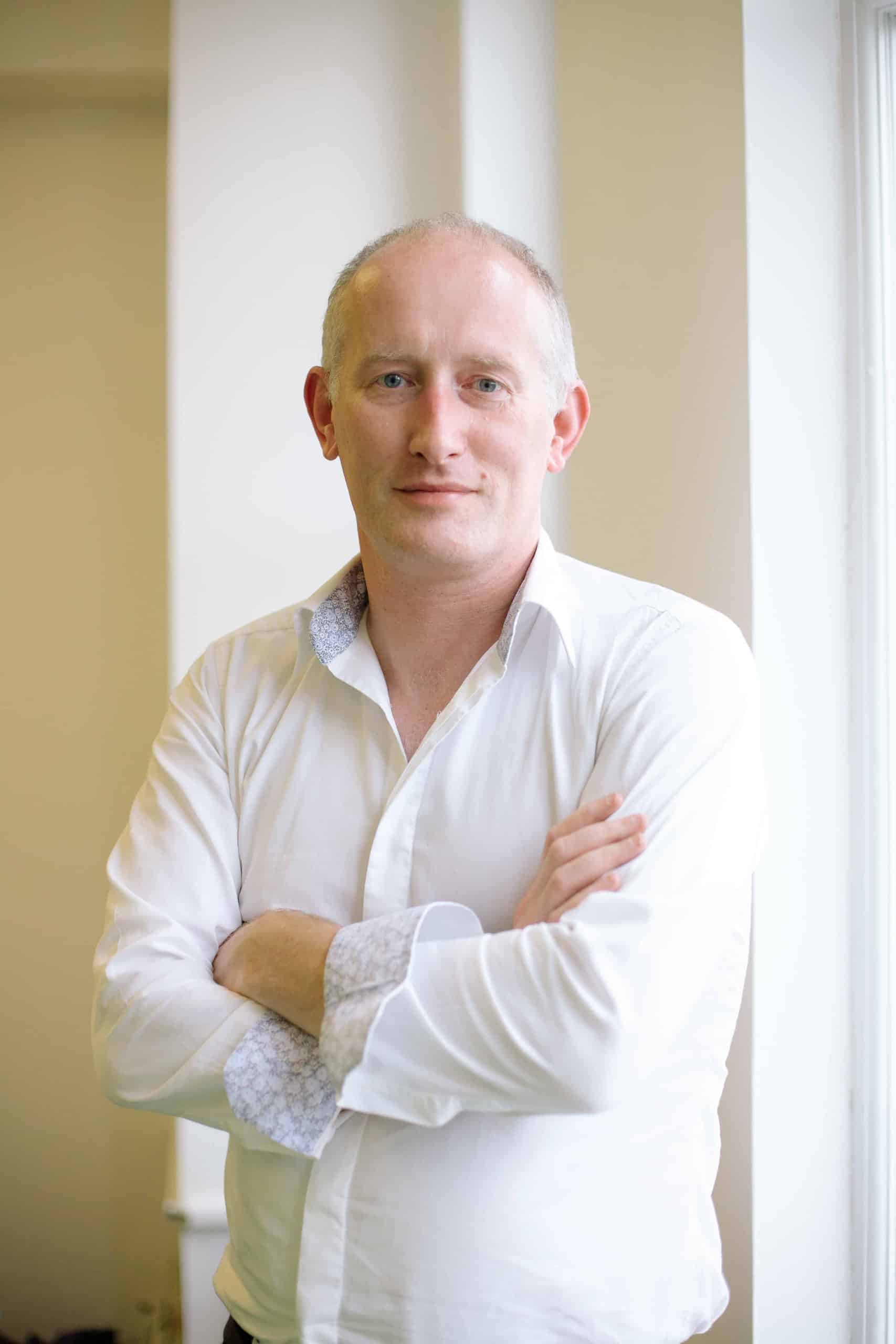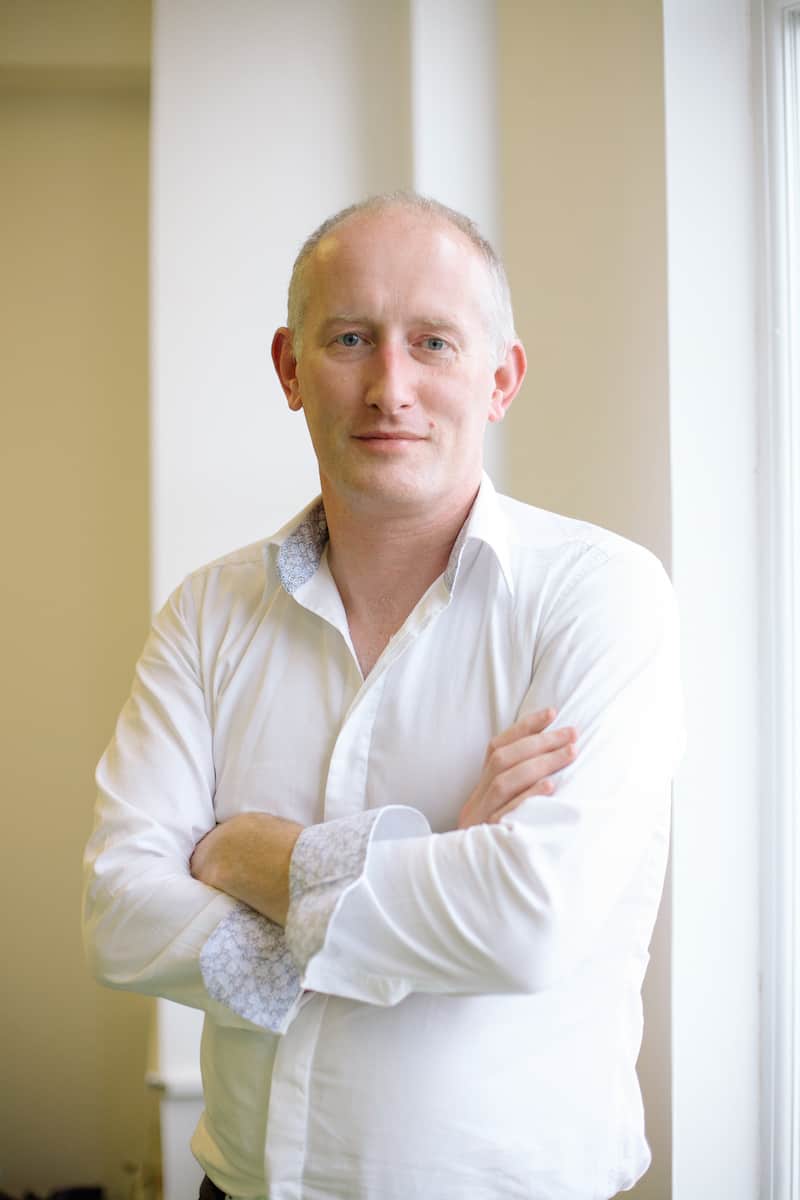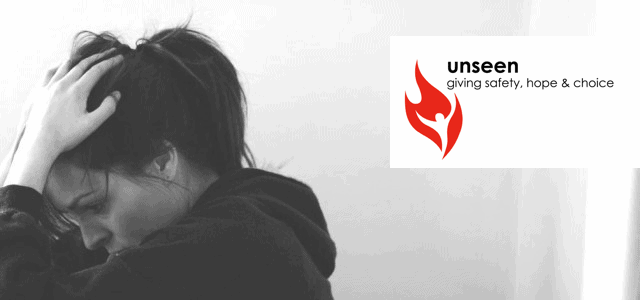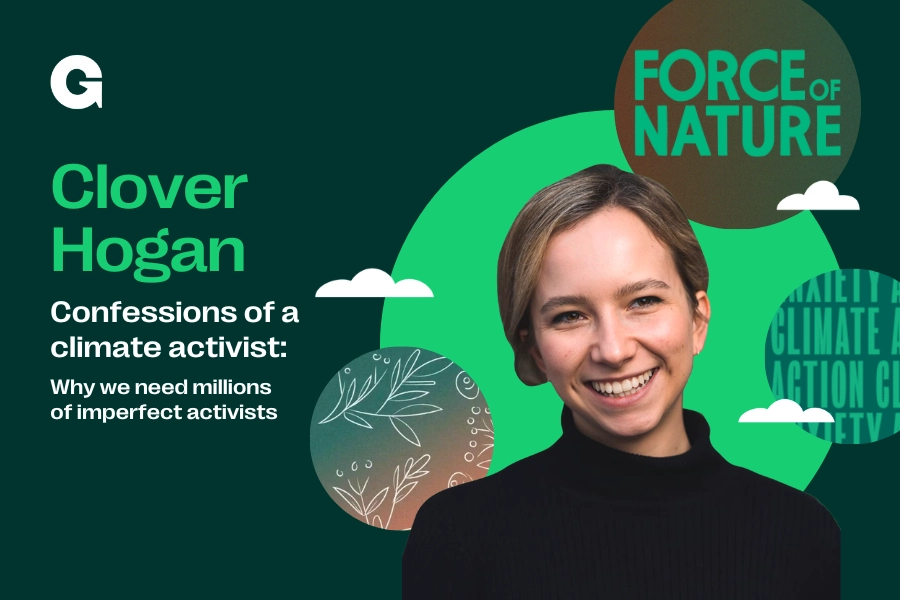Greenhouse Pioneer: Andrew Wallis, OBE, CEO of Unseen
Greenhouse

Today is ‘World Day of Social Justice’, a day that recognises the need to address poverty, exclusion, slavery and unemployment. Greenhouse has interviewed Andrew Wallis, OBE, FRSA, founder and CEO of Unseen, a multi-award winning charity working towards a world without slavery.
Andrew is also chairman of the Working Group for the Centre for Social Justice’s landmark report: ‘It Happens Here: Equipping the United Kingdom to fight modern slavery’ which gave a comprehensive road map for government, statutory authorities and business to eradicate slavery in the UK and is now acknowledged as the catalyst for the UK’s Modern Slavery Act.
 What drives you?
Justice or more accurately injustice – which is more than being with or caring for the poor and downtrodden but rather asking why are they poor, marginalized, downtrodden? This often leads to difficult conversations and actions especially with people in power or institutions of power.
What is your greatest achievement to date?
At a professional level being awarded an OBE in 2015 for working to combat modern slavery and human trafficking was a huge honour. I had the privilege of chairing the report by the Centre for Social Justice on the issue of modern slavery in the UK and this was acknowledged by the then Home Secretary, Theresa May as the catalyst for the Modern Slavery Act and the new strategy being pursued by government. In the last 10 years, this issue has gone from nowhere to being a primary focus around the globe and to have played some small part in that process is humbling.
On a personal level the fact that my three kids have grown up to become fantastic adults is a source of great pride but probably due more to their mother!
What are the challenges you face?
Two main challenges – helping people think strategically and see the bigger longer term picture. Too often people can become consumed by the here and now and whilst important it can take their focus off the reason we are doing what we are doing.
Second, working collaboratively. It is very easy to say this but much harder to do in practice. In my arena where there is limited funding and historical territorialism I find it frustrating that it is so hard to sometimes work more effectively and collaboratively.
What are you working on that's getting you fired up and excited?
Unseen took over and re-launched the UK’s Modern Slavery Helpline in October 2016 on 08000 121 700. It is a confidential helpline for victims to call for help, the public to call with information or concerns, frontline agencies and businesses to call for support and advice. Since its launch it has exceeded all call volume expectations and made real difference to the lives of victims. As we begin to roll out our communication strategy and work with more partners we will see it become a vital resource in the UK’s fight against modern slavery. This is one area where collaboration is really beginning to pay off and affect the lives of those who are exploited for the better.
Where do you want to take Unseen next?
Our mission statement at Unseen is to put ourselves out of business as we will have ended, with others, modern slavery. I personally think “putting ourselves out of business” should be the mission statement of every NGO. NGOs are started to address particular issues and when achieved should close. It keeps you focused on your primary purpose and stops mission creep.
What can we, as individuals, do to make a difference?
Be aware and know the indicators of modern slavery and when you see something that concerns you, even if it is a hunch then call the Modern Slavery Helpline on 08000 121 700. You may have the final piece of the information jigsaw that enables someone to get free from their situation of exploitation or you may have seen something that no one else has and your call could make all the difference.
What drives you?
Justice or more accurately injustice – which is more than being with or caring for the poor and downtrodden but rather asking why are they poor, marginalized, downtrodden? This often leads to difficult conversations and actions especially with people in power or institutions of power.
What is your greatest achievement to date?
At a professional level being awarded an OBE in 2015 for working to combat modern slavery and human trafficking was a huge honour. I had the privilege of chairing the report by the Centre for Social Justice on the issue of modern slavery in the UK and this was acknowledged by the then Home Secretary, Theresa May as the catalyst for the Modern Slavery Act and the new strategy being pursued by government. In the last 10 years, this issue has gone from nowhere to being a primary focus around the globe and to have played some small part in that process is humbling.
On a personal level the fact that my three kids have grown up to become fantastic adults is a source of great pride but probably due more to their mother!
What are the challenges you face?
Two main challenges – helping people think strategically and see the bigger longer term picture. Too often people can become consumed by the here and now and whilst important it can take their focus off the reason we are doing what we are doing.
Second, working collaboratively. It is very easy to say this but much harder to do in practice. In my arena where there is limited funding and historical territorialism I find it frustrating that it is so hard to sometimes work more effectively and collaboratively.
What are you working on that's getting you fired up and excited?
Unseen took over and re-launched the UK’s Modern Slavery Helpline in October 2016 on 08000 121 700. It is a confidential helpline for victims to call for help, the public to call with information or concerns, frontline agencies and businesses to call for support and advice. Since its launch it has exceeded all call volume expectations and made real difference to the lives of victims. As we begin to roll out our communication strategy and work with more partners we will see it become a vital resource in the UK’s fight against modern slavery. This is one area where collaboration is really beginning to pay off and affect the lives of those who are exploited for the better.
Where do you want to take Unseen next?
Our mission statement at Unseen is to put ourselves out of business as we will have ended, with others, modern slavery. I personally think “putting ourselves out of business” should be the mission statement of every NGO. NGOs are started to address particular issues and when achieved should close. It keeps you focused on your primary purpose and stops mission creep.
What can we, as individuals, do to make a difference?
Be aware and know the indicators of modern slavery and when you see something that concerns you, even if it is a hunch then call the Modern Slavery Helpline on 08000 121 700. You may have the final piece of the information jigsaw that enables someone to get free from their situation of exploitation or you may have seen something that no one else has and your call could make all the difference.
 How is what you are doing inspiring change in others?
The majority of people around the globe held in modern slavery (46 million) are in forced labour situations usually found in the lower reaches of company supply chains. As a former business leader, I recognize that business has a vital role to play in helping end modern slavery. Having led the call for Transparency in Supply Chain legislation over the last six years and is part of the Modern Slavery Act, this disclosure law means we regularly work with businesses who want to do the right thing and ensure that their supply chains and business practices do not bring harm to others. By seeing business as part of the solution and not the problem, speaking their language, understanding their concerns, and by encouraging them to work positively on the issues there is a growing movement of change which ultimately affects lives for the better by ensuring decent work throughout the supply chain.
Can you recommend a life- or game-changing book for our readers?
Seven Pillars of Wisdom by TE Lawrence.
What do you listen to when you're cooking dinner?
I tend to only get to cook at the weekends and on a Saturday afternoon I can often be found with Gilles Peterson on BBC6 Music turned up loud, a glass of good red wine and cook books opened planning for that evening.
What's the best advice you've ever been given?
Never give up, remain positive and always be kind and generous to others.
Can you leave us with who'd be your Eco Hero?
My middle daughter, who often says to people of my generation, thanks very much for creating the awful mess in the world in terms of the environment, sustainability, modern slavery, and a growing divide between rich and poor – guess we will have to clear up the mess but it may be too late on some fronts.
To hear more from other Greenhouse Pioneers visit our blog or follow our twitter account.
How is what you are doing inspiring change in others?
The majority of people around the globe held in modern slavery (46 million) are in forced labour situations usually found in the lower reaches of company supply chains. As a former business leader, I recognize that business has a vital role to play in helping end modern slavery. Having led the call for Transparency in Supply Chain legislation over the last six years and is part of the Modern Slavery Act, this disclosure law means we regularly work with businesses who want to do the right thing and ensure that their supply chains and business practices do not bring harm to others. By seeing business as part of the solution and not the problem, speaking their language, understanding their concerns, and by encouraging them to work positively on the issues there is a growing movement of change which ultimately affects lives for the better by ensuring decent work throughout the supply chain.
Can you recommend a life- or game-changing book for our readers?
Seven Pillars of Wisdom by TE Lawrence.
What do you listen to when you're cooking dinner?
I tend to only get to cook at the weekends and on a Saturday afternoon I can often be found with Gilles Peterson on BBC6 Music turned up loud, a glass of good red wine and cook books opened planning for that evening.
What's the best advice you've ever been given?
Never give up, remain positive and always be kind and generous to others.
Can you leave us with who'd be your Eco Hero?
My middle daughter, who often says to people of my generation, thanks very much for creating the awful mess in the world in terms of the environment, sustainability, modern slavery, and a growing divide between rich and poor – guess we will have to clear up the mess but it may be too late on some fronts.
To hear more from other Greenhouse Pioneers visit our blog or follow our twitter account.
 What drives you?
Justice or more accurately injustice – which is more than being with or caring for the poor and downtrodden but rather asking why are they poor, marginalized, downtrodden? This often leads to difficult conversations and actions especially with people in power or institutions of power.
What is your greatest achievement to date?
At a professional level being awarded an OBE in 2015 for working to combat modern slavery and human trafficking was a huge honour. I had the privilege of chairing the report by the Centre for Social Justice on the issue of modern slavery in the UK and this was acknowledged by the then Home Secretary, Theresa May as the catalyst for the Modern Slavery Act and the new strategy being pursued by government. In the last 10 years, this issue has gone from nowhere to being a primary focus around the globe and to have played some small part in that process is humbling.
On a personal level the fact that my three kids have grown up to become fantastic adults is a source of great pride but probably due more to their mother!
What are the challenges you face?
Two main challenges – helping people think strategically and see the bigger longer term picture. Too often people can become consumed by the here and now and whilst important it can take their focus off the reason we are doing what we are doing.
Second, working collaboratively. It is very easy to say this but much harder to do in practice. In my arena where there is limited funding and historical territorialism I find it frustrating that it is so hard to sometimes work more effectively and collaboratively.
What are you working on that's getting you fired up and excited?
Unseen took over and re-launched the UK’s Modern Slavery Helpline in October 2016 on 08000 121 700. It is a confidential helpline for victims to call for help, the public to call with information or concerns, frontline agencies and businesses to call for support and advice. Since its launch it has exceeded all call volume expectations and made real difference to the lives of victims. As we begin to roll out our communication strategy and work with more partners we will see it become a vital resource in the UK’s fight against modern slavery. This is one area where collaboration is really beginning to pay off and affect the lives of those who are exploited for the better.
Where do you want to take Unseen next?
Our mission statement at Unseen is to put ourselves out of business as we will have ended, with others, modern slavery. I personally think “putting ourselves out of business” should be the mission statement of every NGO. NGOs are started to address particular issues and when achieved should close. It keeps you focused on your primary purpose and stops mission creep.
What can we, as individuals, do to make a difference?
Be aware and know the indicators of modern slavery and when you see something that concerns you, even if it is a hunch then call the Modern Slavery Helpline on 08000 121 700. You may have the final piece of the information jigsaw that enables someone to get free from their situation of exploitation or you may have seen something that no one else has and your call could make all the difference.
What drives you?
Justice or more accurately injustice – which is more than being with or caring for the poor and downtrodden but rather asking why are they poor, marginalized, downtrodden? This often leads to difficult conversations and actions especially with people in power or institutions of power.
What is your greatest achievement to date?
At a professional level being awarded an OBE in 2015 for working to combat modern slavery and human trafficking was a huge honour. I had the privilege of chairing the report by the Centre for Social Justice on the issue of modern slavery in the UK and this was acknowledged by the then Home Secretary, Theresa May as the catalyst for the Modern Slavery Act and the new strategy being pursued by government. In the last 10 years, this issue has gone from nowhere to being a primary focus around the globe and to have played some small part in that process is humbling.
On a personal level the fact that my three kids have grown up to become fantastic adults is a source of great pride but probably due more to their mother!
What are the challenges you face?
Two main challenges – helping people think strategically and see the bigger longer term picture. Too often people can become consumed by the here and now and whilst important it can take their focus off the reason we are doing what we are doing.
Second, working collaboratively. It is very easy to say this but much harder to do in practice. In my arena where there is limited funding and historical territorialism I find it frustrating that it is so hard to sometimes work more effectively and collaboratively.
What are you working on that's getting you fired up and excited?
Unseen took over and re-launched the UK’s Modern Slavery Helpline in October 2016 on 08000 121 700. It is a confidential helpline for victims to call for help, the public to call with information or concerns, frontline agencies and businesses to call for support and advice. Since its launch it has exceeded all call volume expectations and made real difference to the lives of victims. As we begin to roll out our communication strategy and work with more partners we will see it become a vital resource in the UK’s fight against modern slavery. This is one area where collaboration is really beginning to pay off and affect the lives of those who are exploited for the better.
Where do you want to take Unseen next?
Our mission statement at Unseen is to put ourselves out of business as we will have ended, with others, modern slavery. I personally think “putting ourselves out of business” should be the mission statement of every NGO. NGOs are started to address particular issues and when achieved should close. It keeps you focused on your primary purpose and stops mission creep.
What can we, as individuals, do to make a difference?
Be aware and know the indicators of modern slavery and when you see something that concerns you, even if it is a hunch then call the Modern Slavery Helpline on 08000 121 700. You may have the final piece of the information jigsaw that enables someone to get free from their situation of exploitation or you may have seen something that no one else has and your call could make all the difference.
 How is what you are doing inspiring change in others?
The majority of people around the globe held in modern slavery (46 million) are in forced labour situations usually found in the lower reaches of company supply chains. As a former business leader, I recognize that business has a vital role to play in helping end modern slavery. Having led the call for Transparency in Supply Chain legislation over the last six years and is part of the Modern Slavery Act, this disclosure law means we regularly work with businesses who want to do the right thing and ensure that their supply chains and business practices do not bring harm to others. By seeing business as part of the solution and not the problem, speaking their language, understanding their concerns, and by encouraging them to work positively on the issues there is a growing movement of change which ultimately affects lives for the better by ensuring decent work throughout the supply chain.
Can you recommend a life- or game-changing book for our readers?
Seven Pillars of Wisdom by TE Lawrence.
What do you listen to when you're cooking dinner?
I tend to only get to cook at the weekends and on a Saturday afternoon I can often be found with Gilles Peterson on BBC6 Music turned up loud, a glass of good red wine and cook books opened planning for that evening.
What's the best advice you've ever been given?
Never give up, remain positive and always be kind and generous to others.
Can you leave us with who'd be your Eco Hero?
My middle daughter, who often says to people of my generation, thanks very much for creating the awful mess in the world in terms of the environment, sustainability, modern slavery, and a growing divide between rich and poor – guess we will have to clear up the mess but it may be too late on some fronts.
To hear more from other Greenhouse Pioneers visit our blog or follow our twitter account.
How is what you are doing inspiring change in others?
The majority of people around the globe held in modern slavery (46 million) are in forced labour situations usually found in the lower reaches of company supply chains. As a former business leader, I recognize that business has a vital role to play in helping end modern slavery. Having led the call for Transparency in Supply Chain legislation over the last six years and is part of the Modern Slavery Act, this disclosure law means we regularly work with businesses who want to do the right thing and ensure that their supply chains and business practices do not bring harm to others. By seeing business as part of the solution and not the problem, speaking their language, understanding their concerns, and by encouraging them to work positively on the issues there is a growing movement of change which ultimately affects lives for the better by ensuring decent work throughout the supply chain.
Can you recommend a life- or game-changing book for our readers?
Seven Pillars of Wisdom by TE Lawrence.
What do you listen to when you're cooking dinner?
I tend to only get to cook at the weekends and on a Saturday afternoon I can often be found with Gilles Peterson on BBC6 Music turned up loud, a glass of good red wine and cook books opened planning for that evening.
What's the best advice you've ever been given?
Never give up, remain positive and always be kind and generous to others.
Can you leave us with who'd be your Eco Hero?
My middle daughter, who often says to people of my generation, thanks very much for creating the awful mess in the world in terms of the environment, sustainability, modern slavery, and a growing divide between rich and poor – guess we will have to clear up the mess but it may be too late on some fronts.
To hear more from other Greenhouse Pioneers visit our blog or follow our twitter account. 

